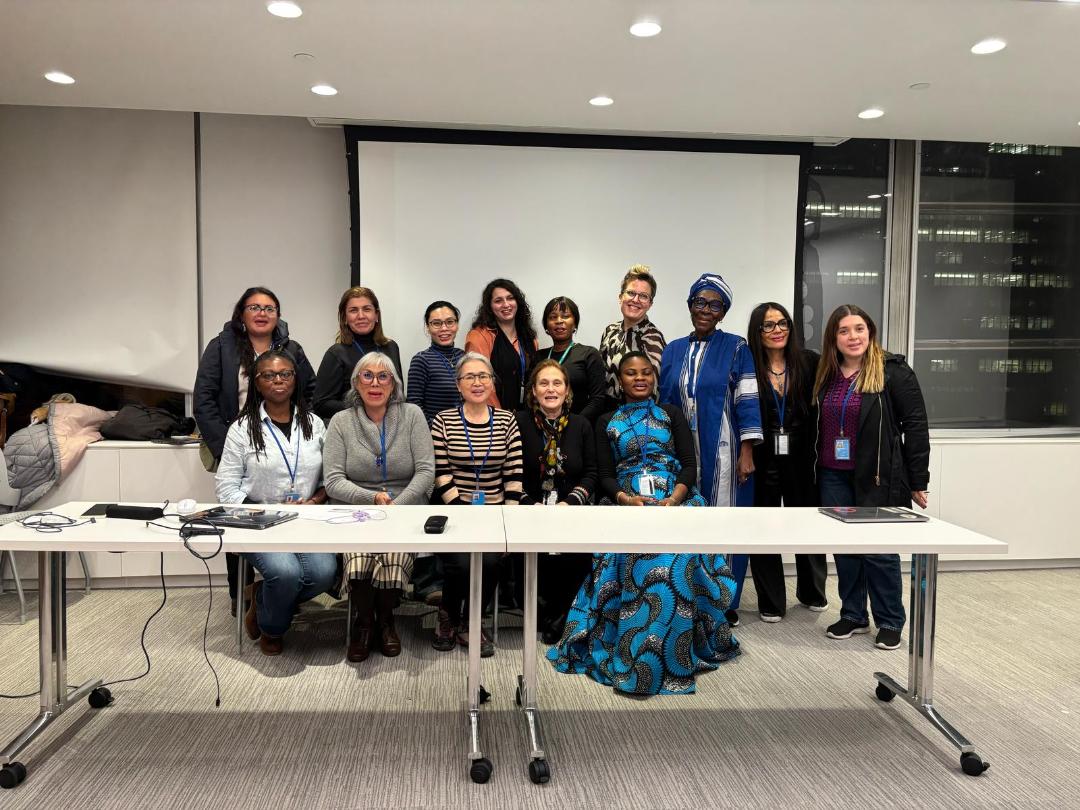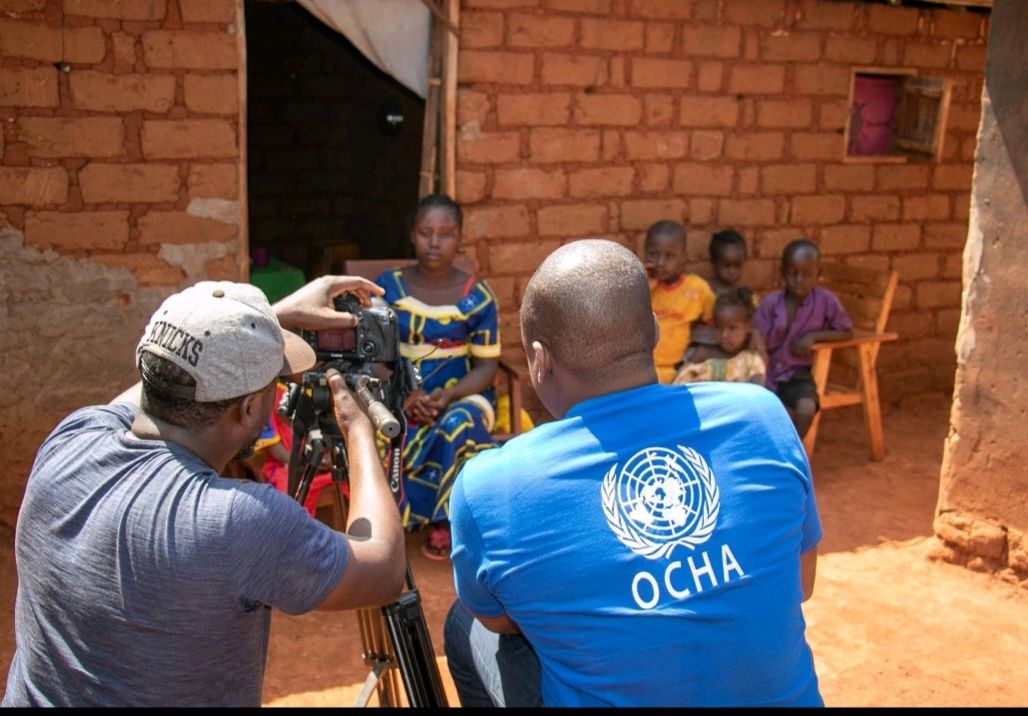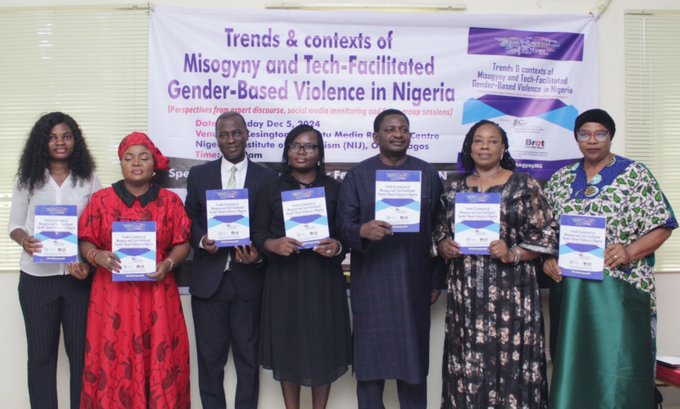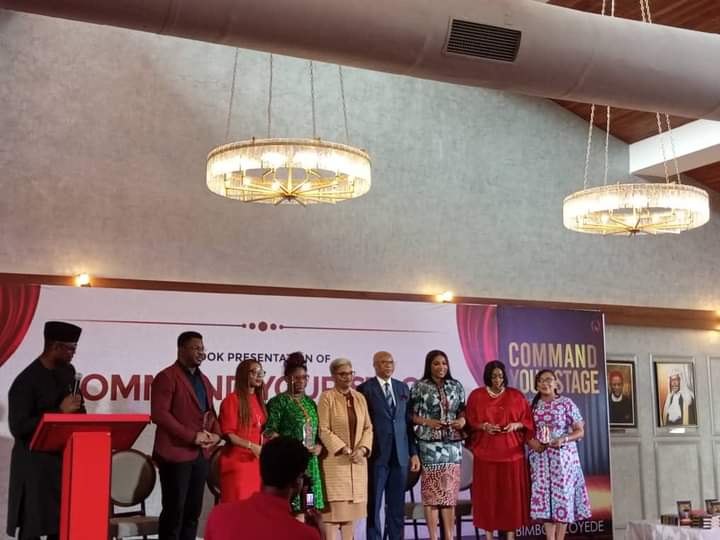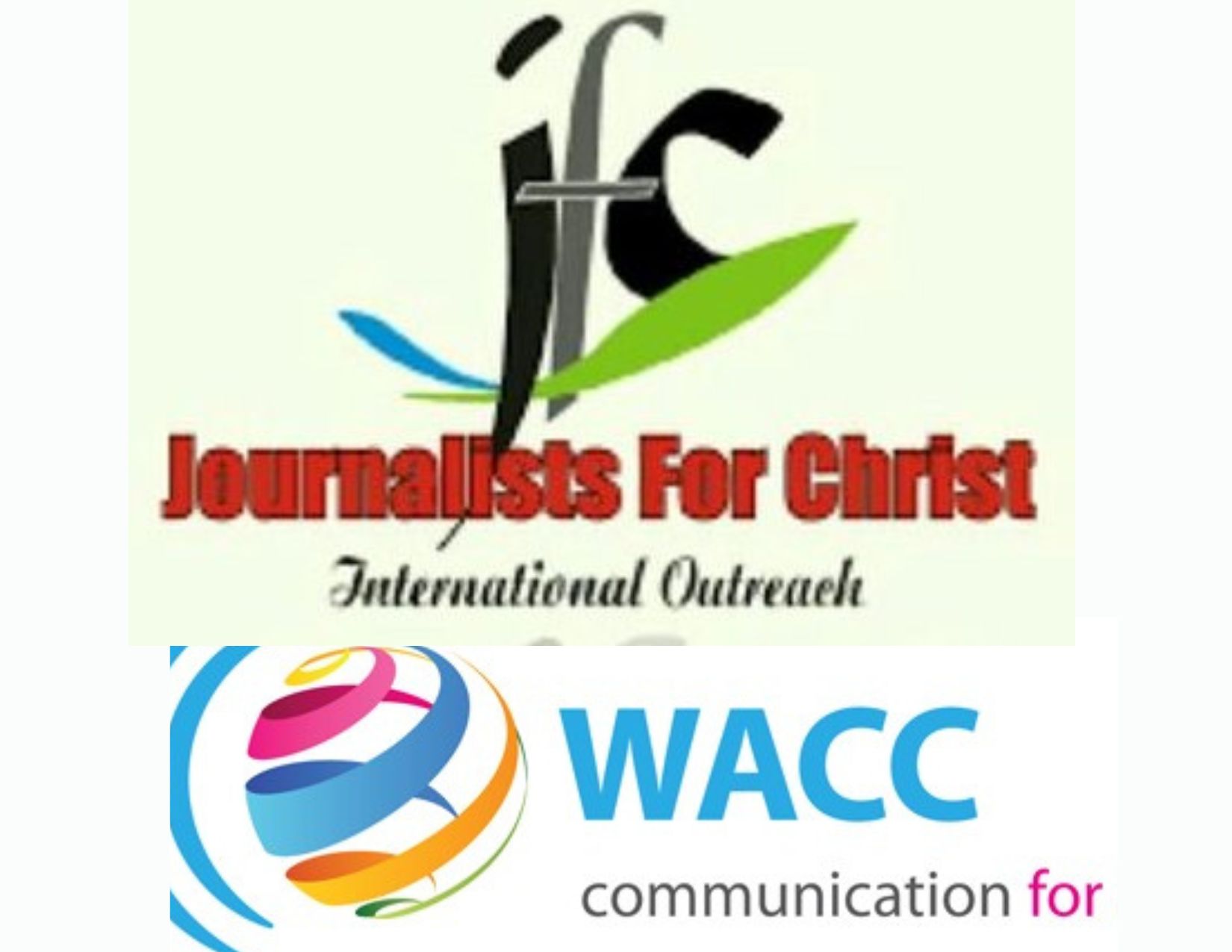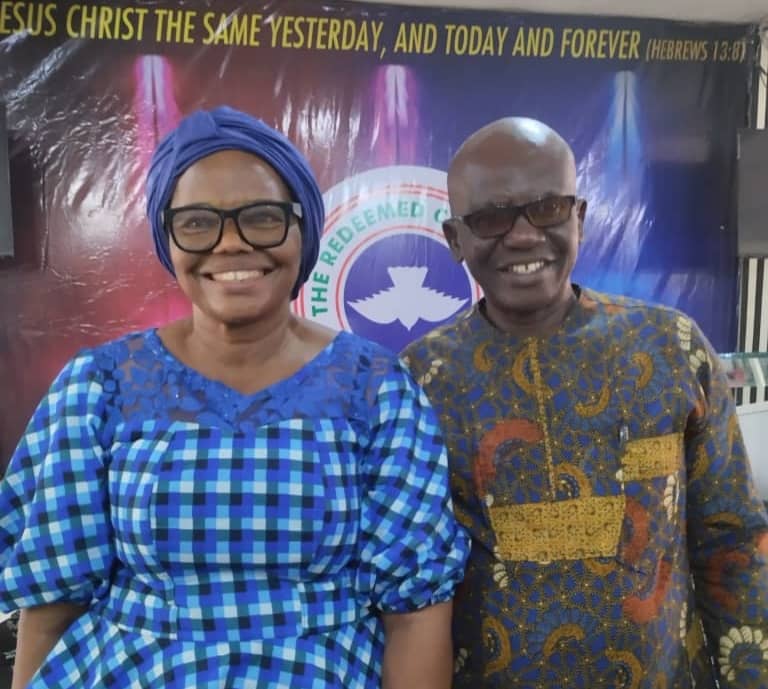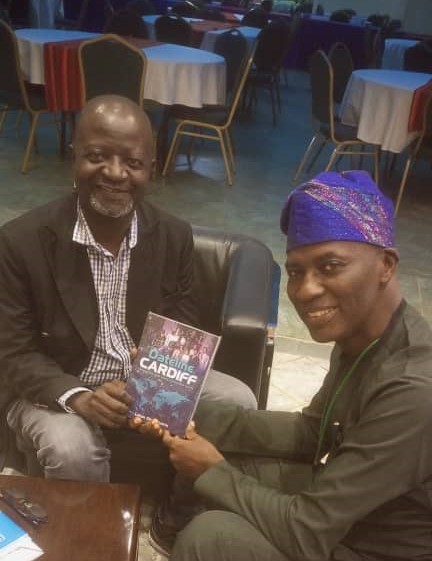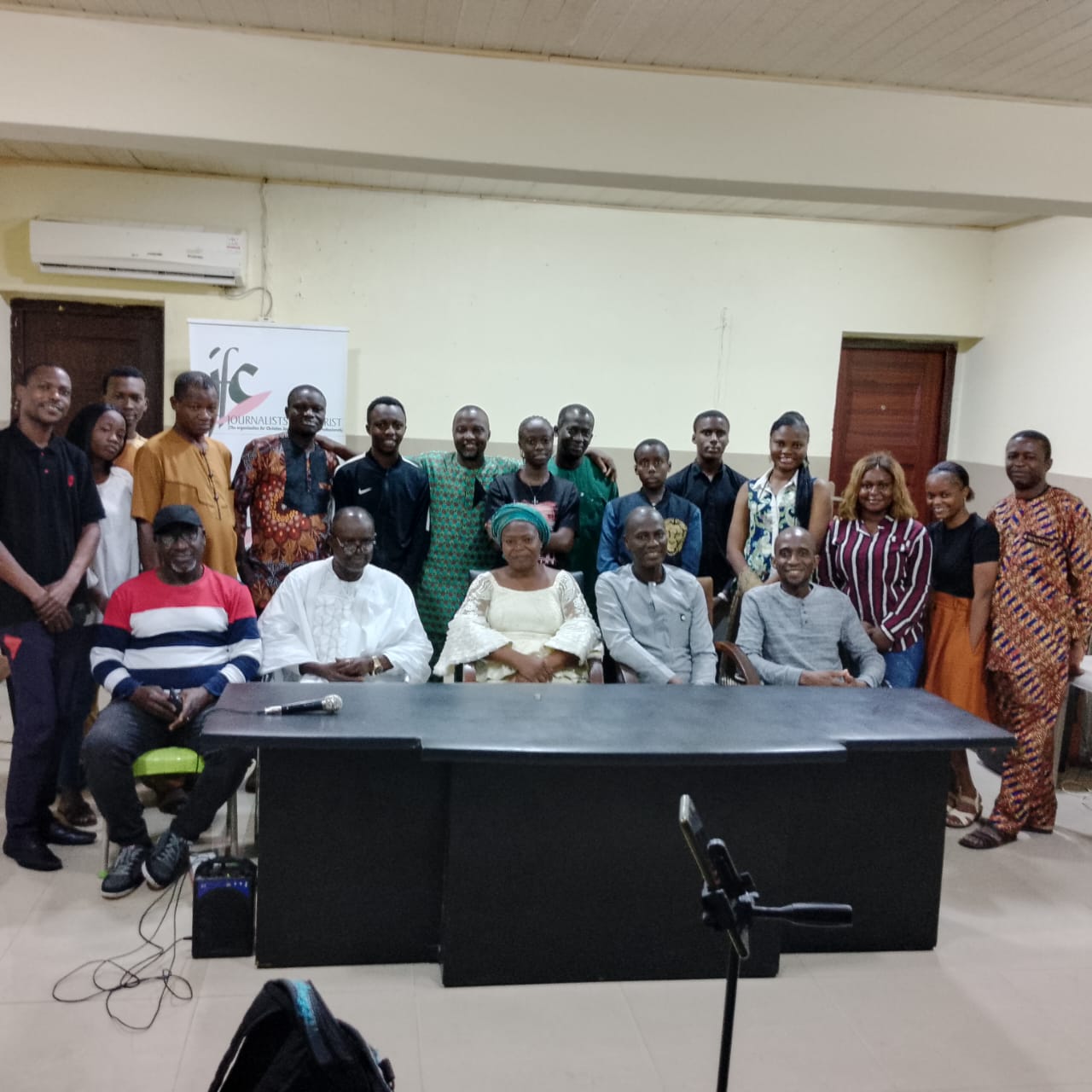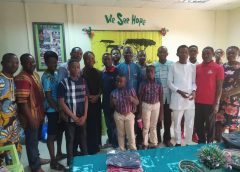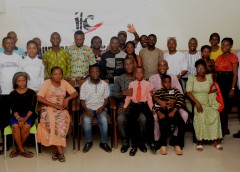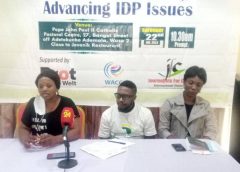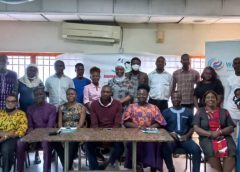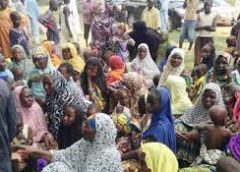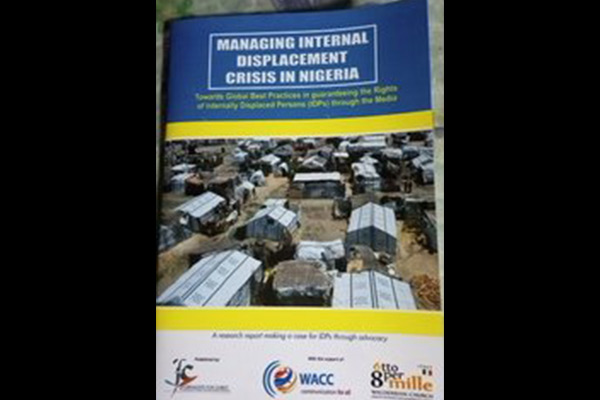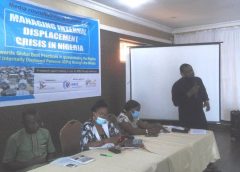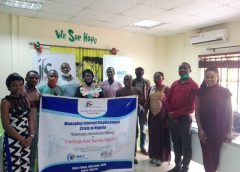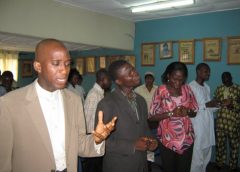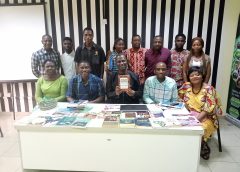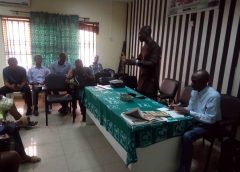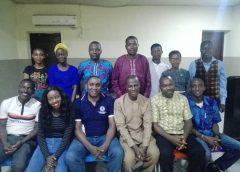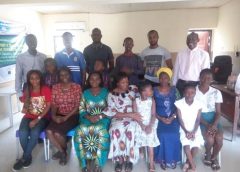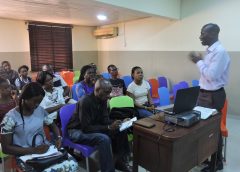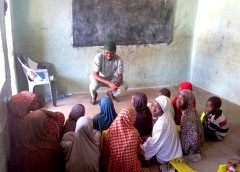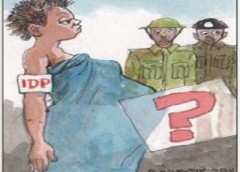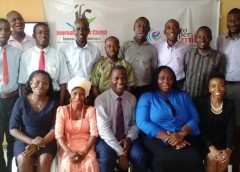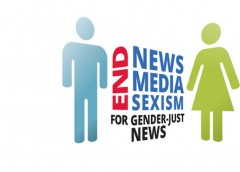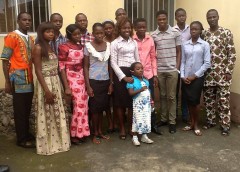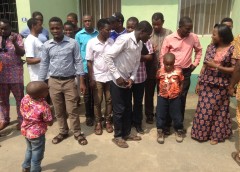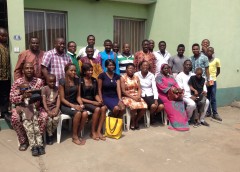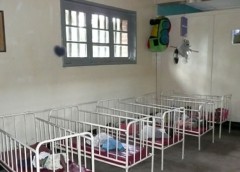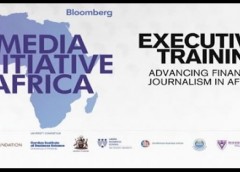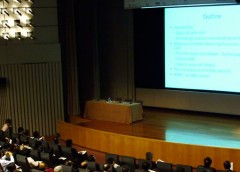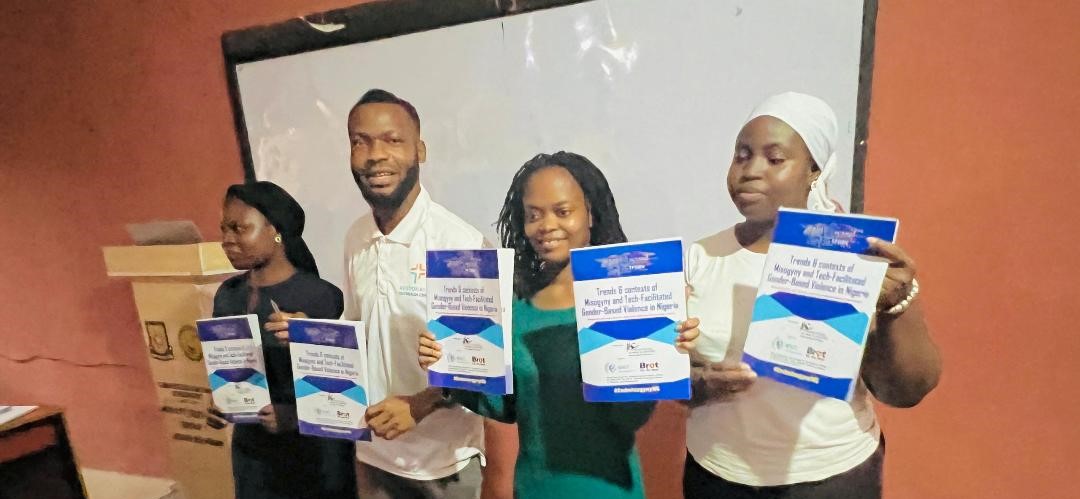
Our Project Assistant, Blessing Osemobor reports on her recent presentation of the Trends and Contexts of Misogyny and Tech-Facilitated Gender-Based Violence in Nigeria report t the Yaba College of Technology, Nigeria.
On February 11, 2025, I stood before a hall filled with Mass Communication students at Yaba College of Technology (YABATECH), Lagos, discussing a topic that many of them had never heard before: Misogyny and Tech-Facilitated Gender-Based Violence (TFGBV).
As I spoke about how online spaces have become a breeding ground for misogyny, harassment, and violence against women, the room was a mix of curiosity and disbelief. Then, a young woman raised her hand.
“Ma, I just heard about TFGBV for the first time today. What is the law doing to stop this? Are there real consequences for people who commit these acts online?”
The silence that followed was telling. Her question highlighted the lack of awareness, legal enforcement, and public conversation on TFGBV in Nigeria.
Understanding TFGBV: A Global Crisis
According to the United Nations Population Fund (UNFPA), TFGBV is “an act of violence perpetrated by one or more individuals that is committed, assisted, aggravated, and amplified in part or fully by the use of digital media against a person based on their gender.”
The United Nations has identified TFGBV as a major barrier to gender equality and human rights. Initiatives like the Generation Equality Action Coalition on Gender-Based Violence advocate for stronger laws, tech regulation, and digital safety. The Sustainable Development Goals (SDGs) 5 (Gender Equality) and 16 (Peace, Justice, and Strong Institutions) also emphasise the need to address violence in digital spaces.
While Misogyny is generally defined as the dislike, hatred of, contempt for, or prejudice against women or girls, typically exhibited by men, or acts and actions showing feelings of dislike for women.
It includes name-calling or use of slur language suggesting women are lesser than men, or use of vulgar images or photos and content that puts down women.
“Misogyny is not just hatred for women; it is hatred that runs deep because it involves thoughts, feelings, emotions, and behavior,” says WAAC Africa Region Executive Member, Kenya, Cathey Maina-Ouma,
Globally, TFGBV statistics are alarming:
38% of women worldwide have experienced online violence (Economist Intelligence Unit).
85% of women and girls have witnessed online abuse against other women.
58% of young women aged 15-25 have faced cyber harassment (Plan International).
Women of color on Twitter are 34% more likely to be targeted with abuse.
These numbers reflect an urgent need for intervention at national and global levels.
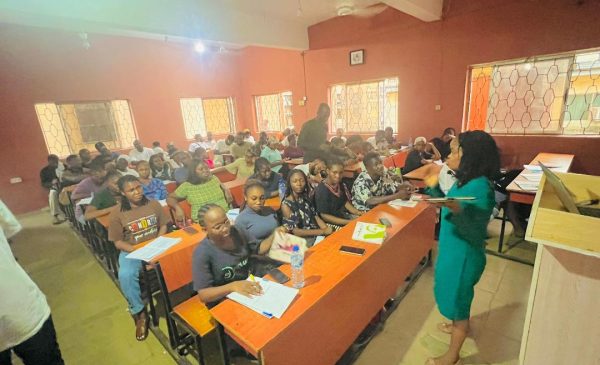
Findings on TFGBV in Nigeria: Insights from JFC’s Social Media Monitoring
The Journalists for Christ (JFC) Countering Misogyny and TFGBV project, supported by World Association of Christian Communication Global (WACC) and Bread for the World, conducted a social media monitoring exercise in 2024, tracking over 500 posts across Facebook, X (formerly Twitter), Instagram, and TikTok.
*Key Findings:*
66 posts (13%) were directly related to TFGBV.
74.2% of identified posts were on Facebook, followed by X and Instagram (12.1% each) and TikTok (1.5%).
Cyberstalking (45.5%) was the most common form of TFGBV, followed by doxing (10.6%), deepfakes (6.1%), sexting (3%), and revenge porn (1.5%).
80% of perpetrators were men, including bloggers, influencers, and skit makers, who used digital platforms to harass, demean, and silence women.
Beyond social media, TFGBV has offline consequences, with JFC’s report noting that:
While TFGBV begins in digital spaces, its effects extend far beyond social media, impacting women’s safety, mental health, careers, and personal lives. JFC’s research and global studies highlight several offline consequences:
*1. Physical Violence and Harm* – Online abuse often escalates into real-world violence: JFC found that 54% of women who faced online harassment also suffered physical abuse, while 34% were physically harmed due to digital threats. Sexualized online violence, such as revenge porn and deepfakes, has led to honor-based violence, particularly in conservative societies.
*2. Psychological Trauma and Mental Health Impact* – Victims of TFGBV suffer from anxiety, depression, PTSD, and even suicidal thoughts, especially young women facing cyberbullying.
A UNESCO study revealed that 73% of female journalists who experienced online violence faced mental health struggles, and 20% were later attacked offline.
*3. Career and Economic Setbacks* – Women in media, politics, and business face career-threatening abuse. 42% of female politicians have been targeted with image-based defamation, while many women journalists leave the profession due to persistent online harassment. Women entrepreneurs are also vulnerable to financial scams, identity theft, and online blackmail.
*4. Digital Exclusion and Silencing of Women* – Fear of online abuse forces many women to self-censor or withdraw from leadership roles, reducing their visibility in governance, media, and activism.
Women with disabilities are particularly vulnerable, as online predators target them with digital exploitation.
*5. Breakdown of Personal Relationships and Social Stigma* – Victims of cyber harassment, doxing, or revenge porn often face family rejection, ruined reputations, and job losses. In extreme cases, some women are forced to relocate or change identities due to severe threats.
The fight against TFGBV is not just about online safety—it is about protecting women’s rights and freedoms in all aspects of life.
These statistics reinforce the urgent need for legal, social, and institutional action.
The Nigerian Legal System: Is It Doing Enough?
When I explained these statistics to the YABATECH students, their reactions ranged from anger to frustration. The student who had asked the question looked stunned.
“So, if this is happening, what is the law doing about it?”
The reality is that Nigeria has legal frameworks that could address TFGBV, but enforcement is weak.
The Cybercrimes (Prohibition, Prevention, etc.) Act 2015 criminalises cyberstalking, identity theft, and revenge porn, but many cases go unreported due to fear, stigma, or lack of trust in law enforcement.
The Violence Against Persons (Prohibition) Act (VAPP) covers various forms of gender-based violence but is not enforced uniformly across states.
The National Agency for the Prohibition of Trafficking in Persons (NAPTIP) has jurisdiction over cases of online sexual exploitation, but digital violence is still not a top priority.
Despite these laws, many women who report online violence do not get justice. The perpetrators remain active, while victims are silenced by shame and fear.
What Can Be Done?
Countering TFGBV Is everyone’s responsibility, President of JFC International Outreach, Lekan Otufodunrin emphasises:
“The internet provides a digital platform that connects us all. Beyond its opportunities, it is gradually becoming a space for gender harassment. Just as perpetrators use digital platforms, we must counter and refute harmful narratives online instead of keeping quiet.”
Education & Awareness: More people need to understand what TFGBV is and recognise its impact.
Digital Counter-Narratives: Campaigns like #EndMisogynyNG and #StopTFGBV need to be amplified.
Support for Victims: Instead of victim-blaming, society must provide legal, emotional, and psychological support.
Policy Advocacy: Stronger laws, stricter enforcement, and digital regulations must be pushed.
Tech Companies’ Accountability:* Social media platforms should improve reporting systems and remove harmful content faster.
“Change begins when individuals, institutions, and the government commit to action”, Otufodunrin added.
“We need to hold each other accountable. I have a daughter, and I don’t want her growing up in a world where she is constantly belittled and objectified,” said a male participant in JFC’s focus group discussion on misogyny.
The Fight Continues: A Global Roadmap for Action
The fight against TFGBV is not just a Nigerian issue—it is a global priority. According to the Gender and Communication Manager at WACC, Dr. Sarah Macharia, “TFGBV is a global phenomenon against women and girls that continues to evolve and multiply as technology advances in the context of a rapidly changing digitisation.”
The United Nations’ 2030 Agenda for Sustainable Development and the Secretary-General’s Roadmap for Digital Cooperation outline key actions to combat TFGBV:
*1. Safety by Design:* Ensuring that digital platforms prioritise survivor-centered product design.
*2. Privacy by Default:* Strengthening data security to protect women from digital abuse.
*3. Effective Regulation:* Implementing strict policies to hold perpetrators accountable and enforce online safety laws.
The UN emphasises that gender equality and women’s human rights in the digital age will not be achieved without addressing the role of technology in perpetuating violence.
The question now is: Will we take action, or will we allow this problem to grow?
